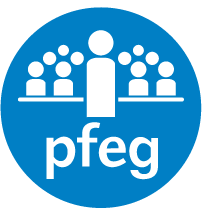English
English is primarily concerned with helping pupils to be successful communicators in both written and spoken language. Pupils need to learn to express themselves in an effective way; correctly, appropriately and with some feeling for the language they use. Reading, writing, listening and talking, the essential elements of language work, are therefore all given equal emphasis. In this respect, drama and discussion work are seen to be as important as reading and writing.
Enjoyment of literature, discussion, and the fostering of reading skills, are complementary activities. Stories, novels, plays and poems can stimulate pupils’ imaginations, while at the same time confirming and developing their ability to read and listen well. Sometimes reading will be a shared activity, but one of our chief aims will be to encourage pupils to learn to read on their own for pleasure.
Marking and Assessment
The members of the Department aim to celebrate success and constructively address individual needs. This acknowledges and encourages pupil participation in the evaluative process. Marking allows the teacher to evaluate their own teaching and their classes’ learning as well as informing the pupil.
An individual teacher’s approach to marking should bear in mind the following:-
- The school’s general marking and spelling policy.
- Marking and commenting on work should be discreet and constructive.
- Discussion and explanation should be regularly used as tools to engender a reflective evaluation.
- The school’s commendation system which enables teachers to reward achievement.
Assessment, especially for Speaking and Listening needs to utilize teacher evaluation and classroom observation. Pupils should also be encouraged to consider the development of their own work through a range of reflective and analytic activities.
The Department aims to report and share with the parents of pupils their progress and achievement honestly and sensitively through the school’s system of reports and consultation. Members of the department are encouraged to use “targeted” or “focused” marking commenting on the objectives for a particular piece of work rather than every element that could be corrected. Sample marking, in which you might mark a limited range of pupils’ work (for instance, some pieces that are above average, average and below average) is also valuable.
Pupils have two forms in which work is completed:-
The Drafting Book - For first drafts, planning and short answers. Not all work is marked in this form
The Best Work Folder - A final draft will normally be done on loose paper. Once it has been marked it is stored in this folder which is kept in school.
GCSE English Detailed Subject Information


















